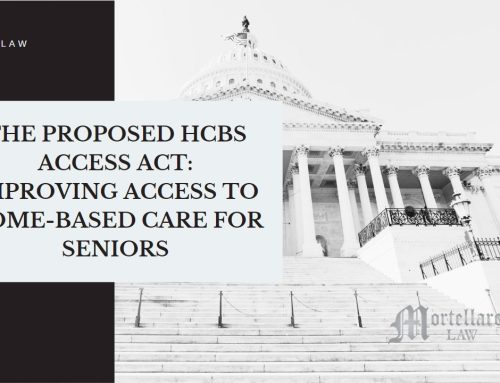The median annual cost of nursing home care in Florida is $117,804 for a private room, and $104,025 for a semi-private room. Depending on the resident’s length of stay, most families are unable to afford these costs out-of-pocket.
Without proper estate planning, a nursing home resident will likely see their assets dwindle quickly while paying for care. Almost everyone will have to make some adjustments to their estate and finances in order to pay for nursing home care, but this article will give you insight into how you can protect some of your assets.
Medicaid
If you have enough money, you may just decide to pay for your or your parents’ nursing home care yourself. Unfortunately, this isn’t a possibility for most people. Therefore, Medicaid is a consideration.
Medicaid is a joint federal and state medical assistance program that, among other things, provides low-income seniors and people with disabilities with long-term nursing and other health care. Over 70 million people in the United States are enrolled in Medicaid, including about 3.7 million Floridians.
In order to be eligible for Medicaid, applicants must meet strict income and eligibility requirements. In Florida, the countable asset limit for the Institutional Care (ICP) and the Home and Community Based Services (HCBS) programs for the elderly and disabled is $2,000, and the income limit is $2,382 per month for a single applicant. Unfortunately, Medicaid will collect your assets or income over these limits to help pay for your nursing costs.
Irrevocable Trusts
If you choose to pursue Medicaid, you’re not doomed to pay your life savings to the government. One way you can legally and ethically transfer assets to your beneficiaries and still qualify for Medicaid is through an irrevocable trust.
Generally, a trust is a legal entity in which the trust maker, or grantor, can place assets to be used by themselves or their beneficiaries. What is unique about an irrevocable trust, is that a a designated trustee controls the assets and provisions of the trust once it is established, and the grantor can no longer access the assets. The assets then belong to the trust rather than the grantor.
It’s understandably intimidating to sign over your assets before the end of your life, but you still get to dictate the terms, rules, and uses of the assets and designate your own trustee and beneficiaries. Plus, it’s better to be able to decide what happens to your assets rather than having to sell them off to pay for your medical care.
However, it should be noted that Florida Medicaid has a 60-month (5 year) look-back period for income and asset transfers. That means, any transfers of assets into an irrevocable trust should be done well before applying to Medicaid, or the applicant will serve a penalty.
Immediate Annuity
In Florida, if only one spouse is applying for Medicaid, the non-applicant spouse can retain up to $130,380 of the couple’s assets. The community spouse can also keep a Minimum Monthly Maintenance Needs Allowance of $2,155 per month, or as much as $3,260 per month depending on shelter costs. If one spouse is applying for Medicaid, and the other intends to remain at home, an immediate annuity can be a powerful estate planning tool.
An immediate annuity is a contract between the annuitant and an insurance company. The insurance company is required to pay the annuitant (in this case, the community spouse) a certain amount of money per month. An immediate annuity can help turn extra assets into a steady income stream for the community spouse.
For example, if the community spouse has $300,000 in countable assets, they can purchase an annuity plan with the $169,620 to meet the $130,380 asset limit. The annuity plan would then pay the community spouse each month, turning the spouse’s assets into an income stream that allows the Medicaid recipient to remain eligible.
Consult with an experienced Medicaid benefits attorney before purchasing an immediate annuity plan to ensure the plan complies with current law and eligibility requirements.
Long-term Care Insurance
Depending on your financial situation, you may have to jump through several hoops to reach Medicaid eligibility. Another drawback to Medicaid is that you are limited to facilities that accept it. Long-term care insurance can give you more, and sometimes better care options.
Just like with regular health insurance, long-term care insurance plans vary in terms of what they cover and how much you pay out of pocket. Long-term care insurance can be expensive, especially if you have a plan for many years without needing it. However, it can protect you from spending all your assets on care or having to give away your assets to reach Medicaid eligibility.
Whether you choose Medicaid, long-term care insurance, or to pay out-of-pocket, the best way to protect your assets from nursing home costs is to plan ahead. If you think you may need nursing home care one day, or just want to get the estate planning process started, give our experienced attorneys at Mortellaro law a call today at 813-367-1500.






